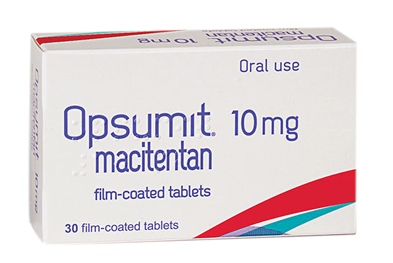Quebec is First Canadian Province to Publicly Fund Novel Oral PAH Treatment
Written by |

 Quebec residents living with pulmonary arterial hypertension (PAH) now have access to a breakthrough, publicly funded drug called Opsumit (macitentan), a once-a-day oral formulation of a dual endothelia receptor antagonist (ERA). On October 1, the Institut national d’excellence en santé et services sociaux (INESSS) recommended that the Régie de l’assurance maladie du Québec (RAMQ) add Opsumit to the list of medications covered by the prescription drug insurance plan. This local development comes nearly a year after the drug’s Health Canada approval in November 2013 as a long-term treatment for PAH.
Quebec residents living with pulmonary arterial hypertension (PAH) now have access to a breakthrough, publicly funded drug called Opsumit (macitentan), a once-a-day oral formulation of a dual endothelia receptor antagonist (ERA). On October 1, the Institut national d’excellence en santé et services sociaux (INESSS) recommended that the Régie de l’assurance maladie du Québec (RAMQ) add Opsumit to the list of medications covered by the prescription drug insurance plan. This local development comes nearly a year after the drug’s Health Canada approval in November 2013 as a long-term treatment for PAH.
[adrotate group=”4″]
The President of the Fondation Hypertension Artérielle Pulmonaire – Québec (HTAPQ), Denis Cormier, said that Opsumit’s availability is a milestone for PAH patients and healthcare providers in the province, as it is one of the few drugs indicated for PAH that can provide long-term data on safety and efficacy. This long-term data was obtained from a study dubbed SERAPHIN, which is the only study today that included a defined morbidity/mortality endpoint. It was also the biggest and longest randomized, placebo-controlled research initiative for PAH.
[adrotate group=”3″]
The drug’s approval for public funding is also a milestone for Canada as Quebec is the first province to obtain it. According to Angie Knott, the National Manager of the Pulmonary Hypertension Association, there are high hopes for Opsumit to be adopted for public reimbursement in other Canadian provinces.
It is estimated that there are over 10,000 Canadians diagnosed with PAH, which is likely to be an undercount due to the fact that it is commonly misdiagnosed as other respiratory or cardiovascular disorders. Unfortunately, science has yet to find a cure for pulmonary hypertension, but breakthrough treatments such as Opsumit give struggling PAH patients hope, and can greatly improve patient outcome. This is especially crucial in patients with preexisting PAH who are admitted to the ICU for a different condition, as intensive treatment may be a source of fatal cardio-respiratory stress.



